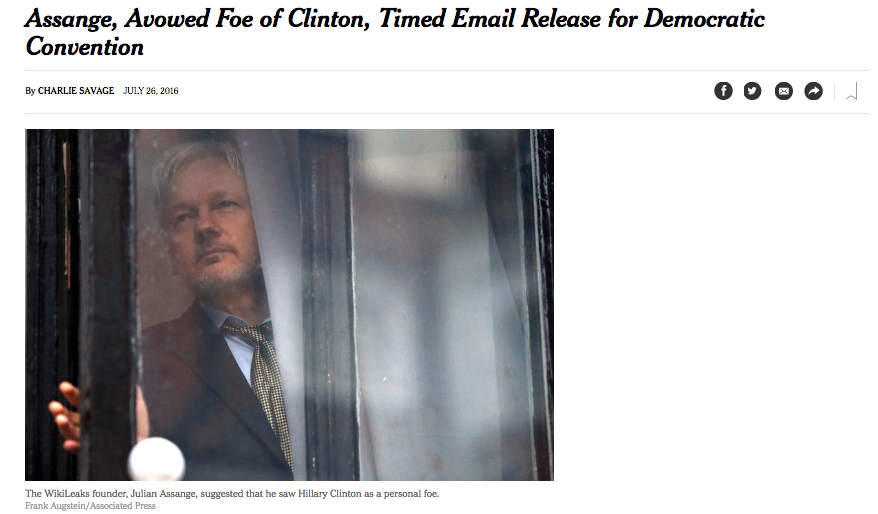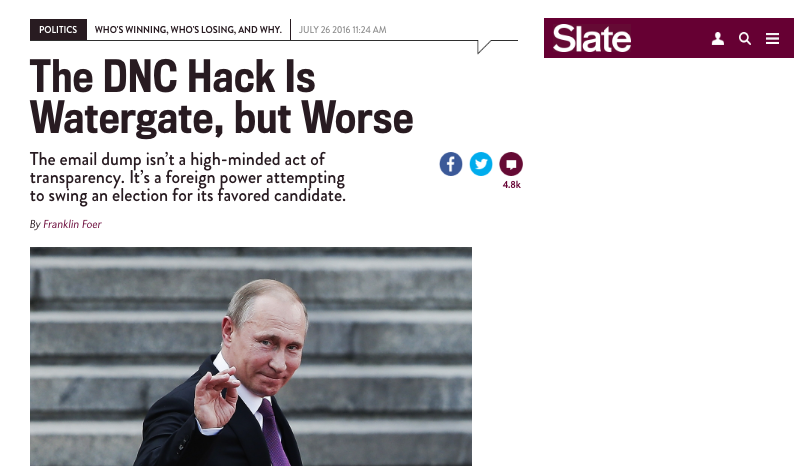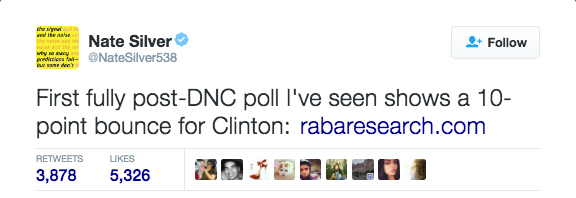Newton's Third Law Strikes Again
August 7, 2016

the villain took on many forms
I.
Back when the first season of Orange Is the New Black dropped—history blurs, but I think this was the Bronze Age—critics argued that Piper Chapman, the rich/cis/white/hetero protagonist, distracted from the more interesting and important stories of the show’s minority characters. I stopped watching after the fourth MDMA cuddle episode, but the anti-Piper argument is still going strong. Google gives me: “‘Orange Is The New Black’ Has A Privilege Problem”, “Orange Is the New Black’s third season has a Piper problem”, “Is Piper Chapman Actually the Worst? A Season-by-Season Assessment”, and “‘Orange Is The New Black’: 3 Reasons Piper Should Be Killed Off.” The only mainstream defense I can find is written by a man (read: problematic) named Todd VanDerWerff, a defense so mawkish and feeble (“I know many of you disagree with me, so flame away”) that it seems designed to lead the reader to the opposite conclusion, #PiperSucks.
And I agree: Piper does suck. That’s what’s suspicious. When everyone agrees, everyone is asking the wrong question.
Here is Jenji Kohan, the show’s creator, talking to NPR:
In a lot of ways Piper was my Trojan Horse. You’re not going to go into a network and sell a show on really fascinating tales of black women, and Latina women, and old women and criminals. But if you take this white girl, this sort of fish out of water, and you follow her in, you can then expand your world and tell all of those other stories. But it’s a hard sell to just go in and try to sell those stories initially. The girl next door, the cool blonde, is a very easy access point, and it’s relatable for a lot of audiences and a lot of networks looking for a certain demographic. It’s useful. (Emphasis mine.)
Jenji Kohan is very smart; Weeds made me want to smash my head through a plate glass window, but it induced this emotion with near surgical precision. Question, though: do you think Jenji Kohan relates to Piper Chapman?

Jenji is worth 15 mil, presumably she could get her brain transplanted to a mecha; instead she chose librarian glasses, Simply Be, and hair the color of wild berry Skittles. She looks like the Tumblr stereotype aged up 30 years, which is not a diss but also not coincidental. Orange Is the New Black is Netflix’s most-watched original series, it’s thoughtful and well-made, different people watch it for different reasons, standard disclaimers apply, but the show’s core demographic is a) Tumblr, b) people who used to go on Tumblr, and c) 40 year-olds who would go on Tumblr if they could figure out how to caption gifs.
None of these people identify with blondes who sell artisanal soaps—indeed, that is the archetype they define themselves against. Yes, Piper shares upper-middle class markers with OITNB’s audience: that doesn’t make her relatable, it makes her recognizable. “Near-outgroup” is the technical term, “Another skinny blonde bish here to ruin my life” is the phrase I usually hear. The root of OITNB is, “Yeah, you think you’re winning, but what if you went…to prison?” When this prompt stars a white man, it’s gay porn; when it stars a white woman, it’s also gay porn, but tasteful. Piper doesn’t have to be humiliated, she just has to look like a chump. It’s never an accident when Piper is petulant, patronized, conniving, and/or obnoxiously privileged. It is entirely the point. You get to feel superior.
Except that’s just half the trick: not only do you get to feel superior to Piper, you get to feel superior to the show. “Why are they spending so much time on 0.001st world problems???” Exactly. To make you angry. Rage is free marketing—I learned Season 4 was out from the complaints—but more importantly, your anger invests in you in the show, makes it so you need to know what happens next. In both OITNB and Weeds, characters are rewarded for bad behavior (e.g. infidelity), while ironic synths pulse and the show screams: "See this? This is BAD. And it’s BEING REWARDED. Doesn’t that make you mad?“ Now apply this theory to public relations. A key OITNB character dies a problematic death at the end of Season 4. Do you think the writers/producers/Netflix execs didn’t know this death would be problematic? Feature not bug, it sets up a demand that they make up for it next episode, next season. See also: Game of Thrones.
Which is to say that there are really two stories: OITNB, and the struggle to keep OITNB accountable. And the hero of the second story is…you.
This is why the meta-story of “how OITNB will change” is so predictable. It’s a serial: Xeno’s paradox towards your MacGuffin of choice.
Season 3 of “Orange is the New Black” is the best one yet, because there’s a lot less Piper (Taylor Schilling), the protagonist of the first two seasons.
Planned obsolescence = the product is created with a flaw so you can celebrate when the flaw is fixed. “We did it, Reddit!”
In the little we do see of her, rapid changes take place, and she is transformed into an almost psychopathic, self-obsessed criminal.
Sure, but she’ll always be a petty criminal. Her morality doesn’t matter, as long as she is fit for scorn.
With such a strong cast of intriguing and complex characters, “Orange is the New Black” would be better off without her altogether. (Source)
Piper’s existence keeps the Skinner Box intact and the dopamine roulette spinning: it tells you what to want. I doubt Piper will die before the end of the show, but if she does, another enfant terrible will take her place. Voltaire: “If problematic faves did not exist, it would be necessary to invent them.” Or, if you prefer, Regina Spektor: “Taking steps is easy. Standing still is hard.”
II.
I’m working on my conspiracy theory game, so: the DNC hack is Vladimir Putin’s endorsement of Hillary Clinton.
Let me start over.
WASHINGTON — American intelligence agencies have told the White House they now have “high confidence” that the Russian government was behind the theft of emails and documents from the Democratic National Committee, according to federal officials who have been briefed on the evidence.
[The emails] showed efforts to impugn Senator Bernie Sanders of Vermont in his effort to challenge Mrs. Clinton for the nomination.
The emails were released by WikiLeaks, whose founder, Julian Assange, has made it clear that he hoped to harm Hillary Clinton’s chances of winning the presidency. It is unclear how the documents made their way to the group. But a large sampling was published before the WikiLeaks release by several news organizations and someone who called himself “Guccifer 2.0,” who investigators now believe was an agent of the G.R.U., Russia’s military intelligence service. (NYTimes)
Them’s the facts. Spin 1:

Whoa, is that Ricky Gervais? Horrifying. Spin 2:

Both liberals and conservatives agree with this analysis, which is kind of beautiful: no matter how fractured the political landscape, Americans can still come together to commit the fundamental attribution error. Putin is a Bond villain, cold as the Khabarovsk winter, doing the dictator wave as he plots the demise of capitalism. Assange, Avowed Foe of Clinton, 5/5 with trample, will crush anyone who hinders his quest for an impossible freedom—and this time, it’s personal. It’s a post-grad version of “the terrorists hate our freedom.” We want supervillains, and we demand to be the reason for their schemes.
You should always be skeptical of a story so convenient.
Here’s Pravda.ru on “Will Trump become Russia’s best friend?”
….when asked what outcome of the US elections is advantageous for Russia, 37 percent of Russians said that they found the question difficult to answer. Twenty-six percent of the polled said that the US presidential vote was unimportant for Russia.
Forty-four percent of the polled said that they did not know anything about Donald Trump. Thirty-six percent said that they did not know anything about Clinton.
The article adds that Russians feel more antipathy towards Clinton than Trump, but, “Russia never expects the US to elect a president that would be ‘good’ for her.” Which, not a shocking take, given the sidebar link to “The West has raped, killed and destroyed the whole world.” Damn, talk about clickbait.
The Moscow Times, which has a serifed logo, interpret how you will, references the Trump/Putin Lethal Weapon script and continues:
All of this sounds endlessly ironic to a Russian who for years has been watching Russian political managers manipulate a threat of foreign intervention to put all independent players under effective control. The Russian opposition has long been demonized as “U.S. stooges.” The Russian state has initiated legislation that allows it to label any NGO using foreign funding a “foreign agent.” Moscow put a cap on foreign ownership of media companies, arguing that foreign publishers essentially represent foreign interests and influence Russian politics. Denouncing Putin’s opponents, independent politicians, and even provocative singers and artists as the puppets of some hostile external force has been a daily routine for the Russian state-run media for many years now.
Putin is a politician. Maybe not the fireside chat type, but you gotta keep the proles from throwing firebombs somehow. 81% of surveyed Russians have an “unfavorable” view of the U.S. It’s an election year. Why not score a rook off Kasparov? I don’t know if Russians think their government is behind the hack—the Kremlin denied any involvement, which is exactly what the Kremlin would say—but when Clinton blames Putin, this flatters him. Enemy of my enemy and all that. “Again, Americans attack Russia to distract from their own degeneracy. In such times, we need strong leaders to…”
Switch continents. How has the hack affected Clinton’s campaign?

Polls at this stage are bullshit, I agree, but grant that there’s little evidence that the hack has harmed Clinton. The media quickly honed in on Trump, the leaked emails were dismissed as minor, and even among people who are into salvia and locket photos of Bernie Sanders, the “rigged election” is bullet point ten in a list of Clinton’s alleged misdeeds.
I’ll go a step further: the hack is going to help Clinton’s campaign. Clinton is haunted by her reputation: “You know, Drowning Pool’s ‘Bodies’ was supposed to be a documentary. I’m just saying, man, who knows what she’s capable of?” But now you do “know”: she’s capable of swaying a few bureaucrats to write emoji-afflicted emails. The leak localizes a previously amorphous corruption: she still looks shady, but in a way that’s understandable, manageable. This will make it easier to support her. Vent and move on. “They’re both nuts, but what can you do? At least we can hold her accountable.” Logical follow-up: in the general election, Clinton moves to the left on a superficial but high profile issue. “We did it, Reddit!” Yeah, you did.
Last piece of the puzzle: the Times claims that Assange “timed email release for the Democratic Convention.” They fail to point out that this was when the emails were least likely to do harm. If the the emails were leaked in the primary, Ezra Koenig would have lead a mob of amateur webcomic artists on Washington. If they were leaked in the general election, Clinton would be hard-pressed to regain control of the narrative. As is, Assange lobbed a fat one for a DNC spike. Case closed. Bring out the comedians.

Assange is not stupid. He is playing the long game.
A: So that’s a rather interesting understanding of how organizations really only have two choices to deal with transparency. The first choice is they can simply stop doing things that embarrass the public, so instead of committing an unjust act, commit a just act. Instead of hiding something, explain it. That’s one choice.
A: The other choice is that they can spend more on their security; they can become more baroque; they can take things off-record, speak orally and continue with this course of unjust action. But if they do that, they will become inefficient compared to other organizations, and they will shrink in their power and scale. And that’s also great because unjust organizations are in economic and political equilibrium and competition with just organizations.”
Q: That’s what you call the "secrecy tax”?
A: Yes, that’s right. So organizations that are doing things that the public doesn’t like, when there are leaks, self-impose [a] secrecy tax through all this bureaucracy administration secrecy, and as a result simply shrink in their power and influence to conduct their affairs in that manner. (Source)
The leak was never meant to swing the election. It was meant as reminder: your secrets are not safe. But for this threat to work, the Capitol has to take Assange seriously as an antagonist—precisely what Putin wants, albeit for different reasons. And if they want to be taken seriously, they have to pick a fight with the winning team.
If it helps, consider an alternate universe where Assange leaks emails impugning Trump. Does anyone care? If bizarro-Trump wins, Assange was just another guy trying to rack up retweets; if bizarro-Clinton wins, Assange was supporting the future Commander-in-Chief = totally uncool.
Putin and Assange may personally prefer a Trump presidency, I don’t know and it doesn’t matter, their actions are business, not pleasure. The hack wasn’t a supervillain plot. It was an advertisement.
III.
I do not intend this essay as opprobrium against Putin, Clinton, Assange, or Orange Is the New Black. There are better reasons to judge each of them, for good or ill, than what is written here. And besides, don’t hate the player, etc.
But you should be very skeptical of the game. Any entity that defines itself as anti-X—that defines itself against, rather than for something—has an abiding interest in X continuing to exist, and it will kick and scream in the name of change to ensure that change does not occur. When you have a million such entities, each Newton 3rd Law-ing itself into homeostasis, you have 2016. All the hatred you can muster just to stay in the same place.